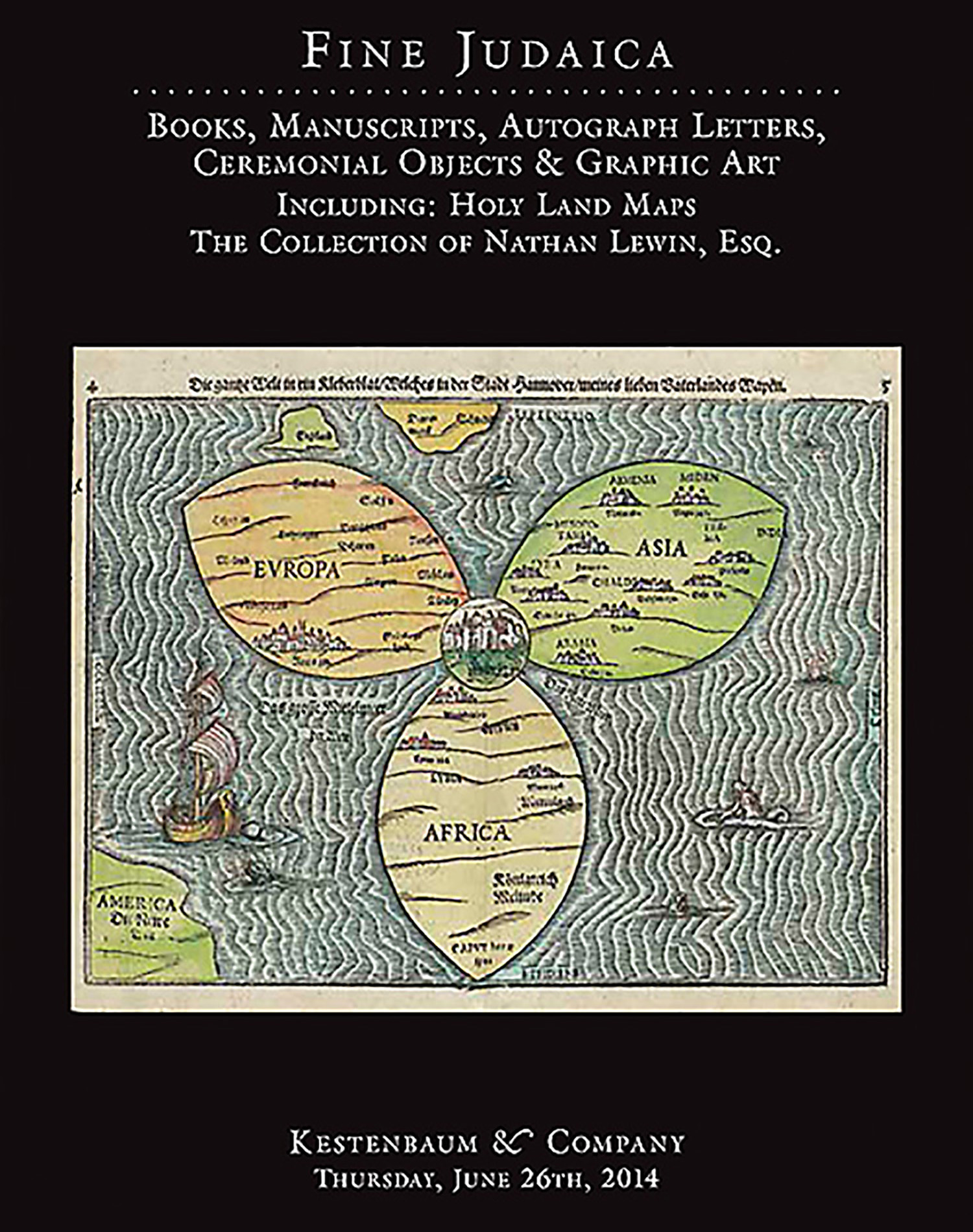Haluka Pinkas.

AUCTION 62 |
Thursday, June 26th,
2014 at 1:00
Fine Judaica: Books, Manuscripts, Autograph Letters, Graphic and Ceremonial Art
Lot 185
(ISRAEL, LAND OF).
Haluka Pinkas.
Jerusalem: 22nd Iyar-15th Tamuz 1891
Est: $7,000 - $8,000
Accounts-book recording nearly four hundred payments provided to residents of the Old Yishuv by the Va’ad HaKlali (general fund). Detailed transaction information is recorded on each payment stub, 385 in total. Each entry consists of six details: Date, name of the recipient, the kollel to which the recipient is affiliated, the purpose of the payment, the amount, the recipient’s signature.
Payments were made for such varied purposes as travel, medical treatment and communal need, such as synagogue upkeep. A most unusual entry (no. 88) notes funds provided to Rabbi Rosenthal on 11th Sivan, 1891 to cover his expenses in order to bring to rabbinic court the wife of one Yisrael Moshe who had accused her of adultery.
The Haluka system was the traditional method of collecting and distributing funds for indigent Jews resident in the Holy Land. It was based around the system of Kollels - the word used in the sense of “community”. Each group of Jews arriving from various countries to settle in Eretz Israel established their own separate community with their own support system. Each community was referred to as the Kollel of… to identify the specific community within the Old Yishuv. The overwhelming majority of these Jews were scholars, who left their homelands to devote themselves to study Torah and to serve God for the rest of their lives. The Kollel was the umbrella organization for all their needs.
The earliest examples were Kolel Perushim who were the students of the Vilna Gaon, and who established the first Aschkenazic Jewish settlement in Jerusalem and Colel Chabad for the Russian Chassidim. The Polish Jews were divided into many kollelim: Most famously Kollel Polen and Kollel Vilna; the Galicians were incorporated under Kollel Chibas Yerushalayim. The last initially included the entire Austro-Hungarian Kingdom, but as each sub-party looking for more courteous distribution, the Hungarians separated into Kolel Shomrei HaChomos.
The funds disbursed by the kollels were the sole means of support for the Jews living in Israel at the time. Jews of the Diaspora willingly supported them as it was believed that the prayers and learning of the Jews in the Holy Land benefitted and even protected their supporters overseas. Initially, each kollel operated independently, each responsible for collecting funds on their own. However following several disputes, the Va’ad HaKlali was founded in order to more effectively represent all of the kollels together.
The present volume is a rich source of historical material of life in Jerusalem in the late 19th-century, containing much historical and biographical information.
